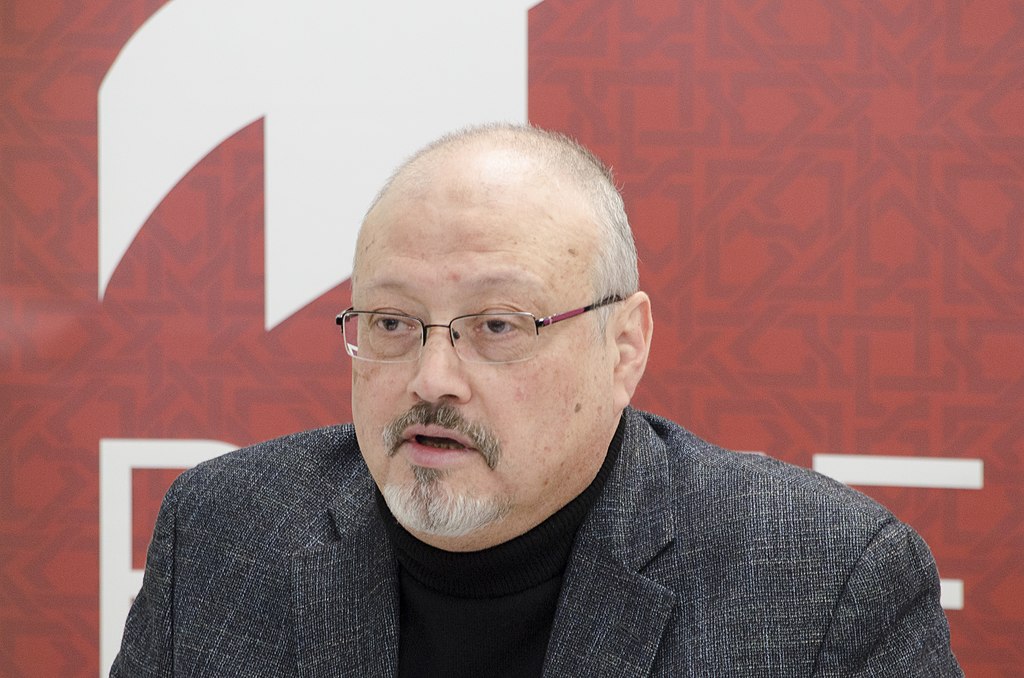The Scottish Government has scrapped plans to recruit a Saudi trade specialist after the killing of journalist Jamal Khashoggi.
Holyrood ministers halted the hiring of a middleman to boost oil and gas business with Saudi Arabia amid mounting international outrage over the apparent murder.
However, critics said the trade initiative was announced days after the violent death of Mr Khashoggi in Istanbul was revealed and branded the timing “obscene”.
The Scottish Government admitted the killing of Mr Khashoggi – after he entered the Saudi consulate in Istanbul – meant the recruitment had been halted.
After being contacted, it said the plan to increase trade with the Saudis had been stopped, adding: “We share the widespread international concern following the disappearance of Jamal Khashoggi.”
The trade drive had been announced by energy minister Paul Wheelhouse on October 10.
Saudi Arabia has admitted for the first time that Mr Khashoggi had died in its consulate in Istanbul eight days earlier. It claimed he died in a fight and that 15 men had been arrested over the death. It later claimed a “rogue operation” was to blame.
Mr Khashoggi died after entering Saudi Arabia’s consulate in Istanbul to obtain a divorce certificate.
The Saudi explanation for his death – described as “credible” by Donald Trump – did not explain why a security team had arrived in Turkey the day before with the party apparently including a Glasgow-trained surgeon, specialising in “mobile autopsies”.
The apparent murder prompted global criticism of Saudi Arabia after emerging on October 6 but, four days later, ministers announced the hiring of an “in-market” specialist to promote Scotland’s energy sector in the oil-rich kingdom.
In partnership with Scottish Development International – which has an office in Al Khobar, in Saudi Arabia – and Opportunity North East, the government said that five “international market specialists” would be hired to support Scottish companies in the energy sector and to lobby governments in the US, Mexico, India, Malaysia and Saudi Arabia.
Energy minister Paul Wheelhouse said he was “delighted” to be hiring the specialiasts to “get that all important foot in the door”.
Scottish Liberal Democrat leader Willie Rennie said it had been “obscene” for the Scottish Government to make its job announcement in the same week it emerged that Khashoggi had been murdered.
He said: “Getting closer to Saudi Arabia in the same week that it appears to have killed its most prominent dissident is obscene.
“Both of our governments should be cutting back on our dangerous trade and security reliance on Saudi Arabia, at least until the regime gives answers on what happened.”
He said that, after the collapse of a putative deal with China under sustained criticism, the Scottish Government had promised new human rights protocols would be put in place, but added: “These don’t appear to be worth the paper they are written on.”
The halting of the recruitment plan also brought more scrutiny to the Scottish Government’s support for Scots firms trading with the Saudi regime.
Ministers have been repeatedly questioned over their financial support for defence firms selling weapons to Riyadh, currently leading an international coalition bombing and blockading swathes of Yemen.
The Scottish Government has given taxpayers’ money to arms giants BAE Systems and Raytheon, who supply the Saudis with warplanes and bombs used in Yemen’s war.
There has also been a legal challenge to the UK Government’s arms sales to the Saudis, although the UK trade secretary Liam Fox has pulled out of the “Davos in the Desert” conference in Riyadh this week.
Andrew Smith, of Campaign Against Arms Trade, said the Saudi regime has an “appalling human rights record” including the “brutal bombardment of Yemen” and accusations about the death of Khashoggi.
He added: “What will these lobbyists be saying when confronted with the reality of the Saudi dictatorship and its authoritarian rule? Will they speak out, or will they prioritise profits?
“This announcement comes at the same time as the war in Yemen is intensifying, and so is the repression in Saudi Arabia. Both have been rightly criticised by Holyrood, and that opposition must not be compromised.
“For far too long Westminster has allowed the interests of big business to dictate its policy in Saudi Arabia, regardless of the terrible abuses taking place. We hope the Scottish Government won’t do the same.”
A former advisor to the Saudi royal family, Khashoggi fell out of favour with the establishment and went into self-imposed exile.
One of 15 suspects named for the alleged murder is Dr Salah al-Tubaigy, an autopsy expert who studied in Glasgow in 2004.
He identifies himself on Twitter as a professor of forensic medicine and head of the Saudi Scientific Council of Forensics.
In 2014 the Arabic newspaper Asharq al-Awsat said Dr Tubaigy was a lieutenant colonel working for the forensic science department of the interior ministry’s General Directorate of Public Security.
Amnesty International, Human Rights Watch, Reporters Without Borders, and the Committee to Protect Journalists, have called on Turkey to ask the UN to launch an investigation.
In response to the atrocity a number of countries and global organisations have boycotted an international business conference due to be held in Riyadh this week.
The UK, US, France and Holland, have all withdrawn from the Future Investment Initiative. The event has also been boycotted by Google, Uber, The New York Times, Financial Times, CNN and the International Monetary Fund.
This story was published by The Sunday Post on 21st October 2018.
Photo thanks to POMED, CC BY-SA 2.0














